Using AI Chatbots for Medical Appointment Booking
Transforming Healthcare Navigation with AI-powered Appointment Systems
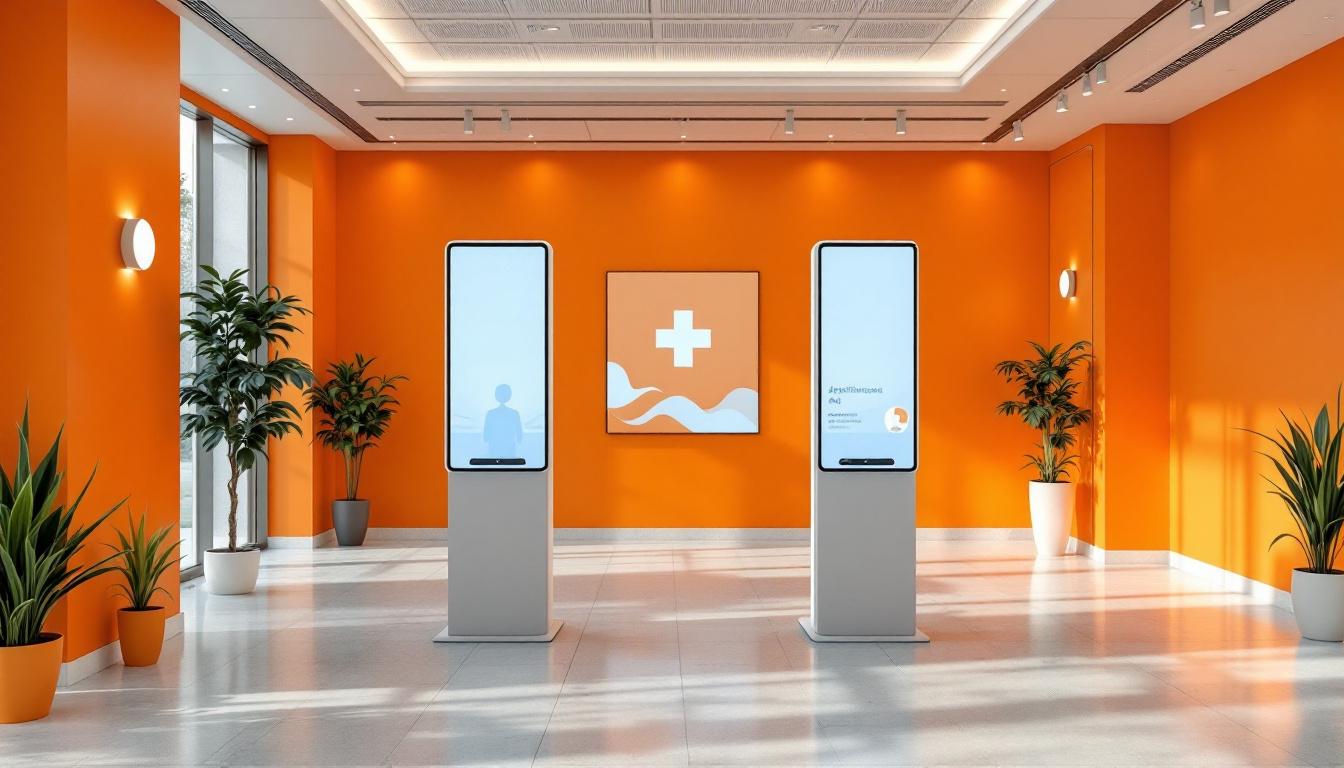

Using AI Chatbots for Medical Appointment Booking
Revolutionizing Patient Engagement and Administrative Workflow
Artificial Intelligence (AI) chatbots are rapidly transforming the landscape of healthcare delivery, particularly in the realm of medical appointment booking. By leveraging advanced natural language processing, machine learning, and seamless system integrations, these digital tools offer a convenient, efficient, and personalized approach for patients and providers alike. With around 19% of U.S. medical practices currently employing chatbot technology, and projections indicating the market exceeding $10 billion in the next decade, AI-driven appointment systems are becoming indispensable in modern healthcare. This article explores the multifaceted use cases, benefits, challenges, and future prospects of AI chatbots in healthcare appointment management.
AI Chatbots: An Introduction to Healthcare Automation
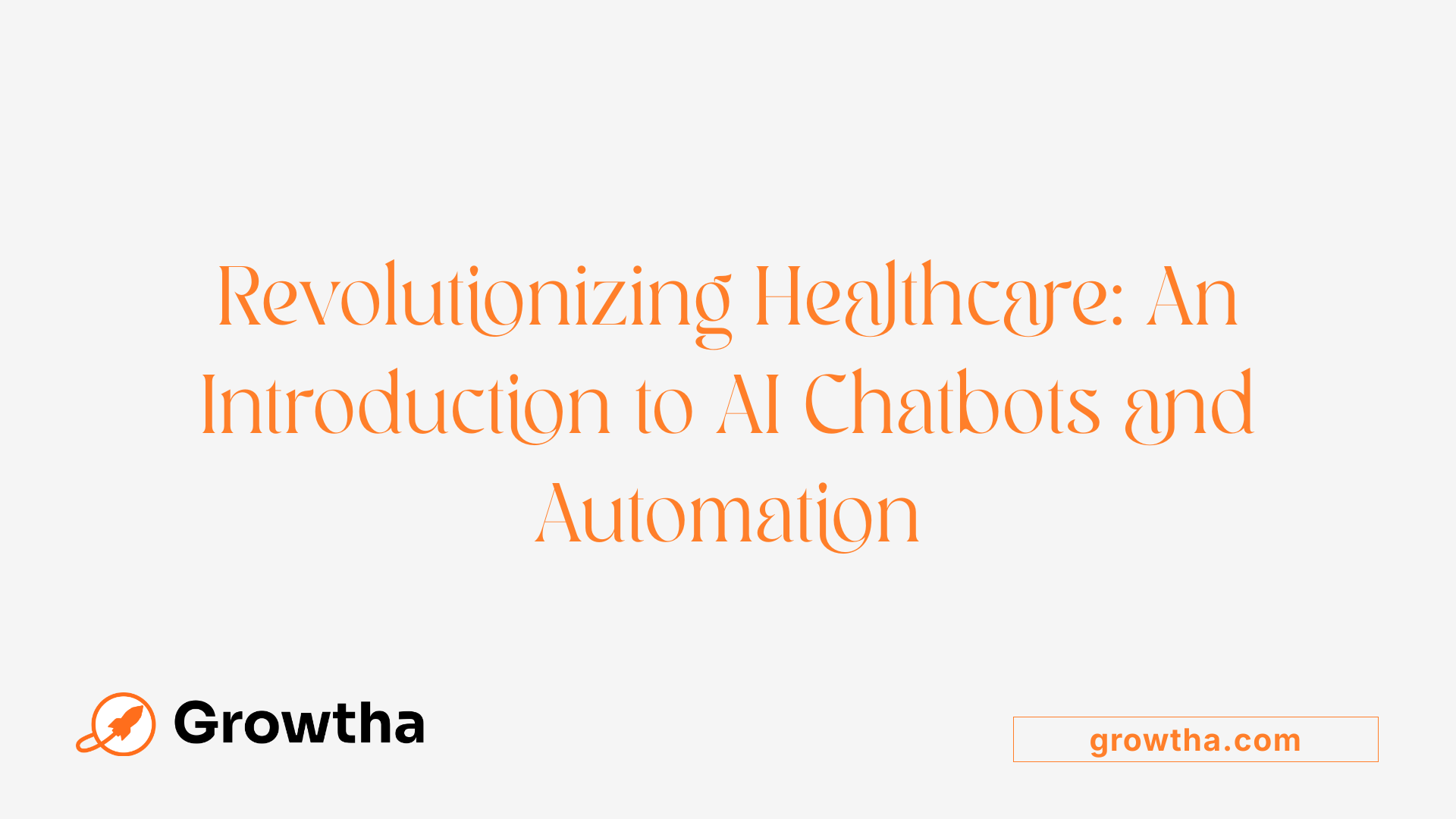
How are AI chatbots used in healthcare?
AI chatbots are transforming healthcare by automating routine tasks and providing round-the-clock support. They engage patients with humanlike language, using advanced models like GPT to simulate conversations. These bots help with symptom assessment, triage, appointment scheduling, medication reminders, and even mental health support.
They ask patients questions about their symptoms, guide them to appropriate care, and support scheduling visits with healthcare providers. This not only streamlines administrative tasks but also enhances patient access to healthcare information anytime, anywhere.
Definition and basic functioning of AI chatbots in healthcare
AI chatbots are intelligent programs that interact with users through natural language processing (NLP). They can understand and respond to medical queries, giving personalized advice or guidance based on patient input. Most healthcare chatbots are designed to be accessible for free, though some offer premium features or are covered by insurance.
These systems are integrated with Electronic Health Record (EHR) systems, enabling accurate data updates and informed responses. They handle a variety of functions, such as appointment scheduling, symptom checking, medication management, and collecting feedback from patients.
Role of models like GPT in simulating human-like conversations
Models such as GPT (Generative Pre-trained Transformer) are at the core of many healthcare chatbots. They use machine learning to generate humanlike, empathetic responses that can enhance patient engagement. For example, some recent studies suggest that AI chatbots powered by GPT can even surpass physicians in delivering empathetic patient interactions.
These models analyze large datasets to learn language patterns, enabling chatbots to respond with context-aware, personalized communication. However, current iterations still face challenges regarding data privacy and accuracy, requiring human oversight for complex cases.
Overview of common functionalities like symptom assessment, appointment scheduling, and medication reminders
AI chatbots support various aspects of patient care:
- Symptom assessment and triage: They evaluate symptoms, categorize urgency, and advise on next steps.
- Appointment scheduling: Patients can book, reschedule, or cancel appointments instantly, often 24/7, reducing no-shows and improving workflow.
- Medication management: Reminders for medication dosage, timing, and safety, alongside answering medication-related questions.
Additional features include mental health support, virtual health monitoring, billing assistance, and multilingual communication. These functionalities aim to improve access, optimize workflows, and deliver personalized care, ultimately transforming the healthcare experience for patients and providers alike.
Functions and Use Cases of AI Chatbots in Medical Scheduling
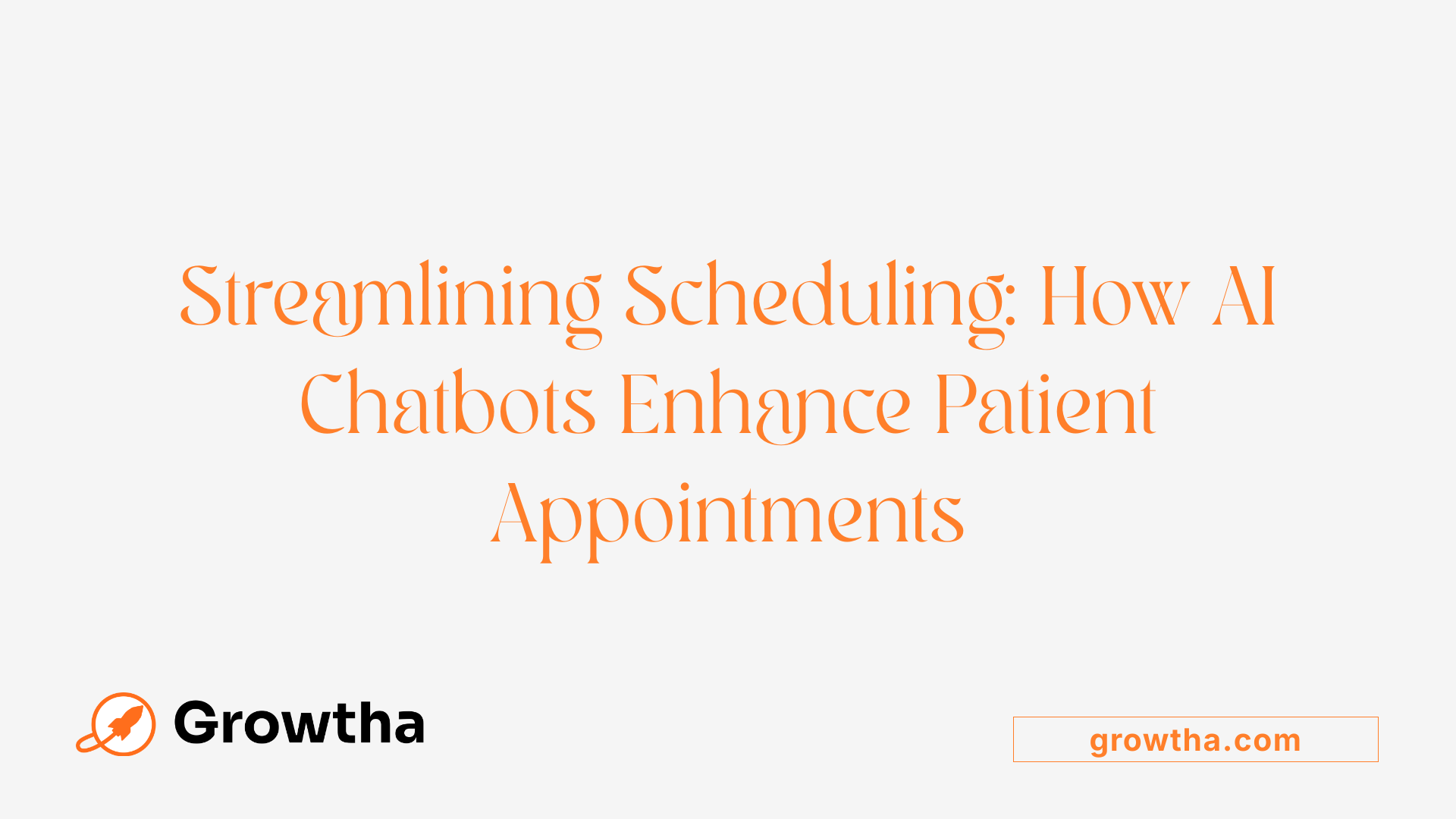
What are the functions and use cases of AI chatbots in medical appointment scheduling?
AI chatbots are transforming how healthcare organizations manage patient appointments. Their primary role is to enable patients to book, reschedule, or cancel appointments at any time and from anywhere. These virtual assistants use natural language processing (NLP) to understand patient requests in simple, conversational terms, making scheduling more accessible and user-friendly.
One of the most significant benefits is the automation of appointment management. Patients can check provider availability instantly, select suitable times, and receive confirmation messages—all without staffing support. This not only speeds up the process but also reduces workload for front-office staff, allowing them to focus on more complex tasks.
Furthermore, chatbots can handle multiple interactions simultaneously, making them highly scalable. They can integrate seamlessly with practice management systems and Electronic Health Records (EHRs), ensuring that all appointment information is accurate and up-to-date. When an appointment is booked, the chatbot can automatically send reminders and follow-up messages, decreasing no-show rates and improving healthcare delivery.
In addition to scheduling, these AI tools often support symptom assessments, guiding patients to appropriate care levels based on their reported symptoms. They also cater to diverse patient populations by offering multilingual support, which is crucial for improving access in multicultural communities.
Altogether, AI chatbots enhance operational efficiency, lower administrative costs, and expand healthcare access for remote or busy patients. They ensure that scheduling is not limited to office hours, providing a 24/7 service that meets the growing demand for immediate health support and information.
This integration of appointment management with symptom triage, reminders, and multilingual capabilities makes AI chatbots a vital component of modern healthcare systems, delivering personalized, accessible, and efficient patient care.
Benefits of AI Chatbots for Patient Appointments
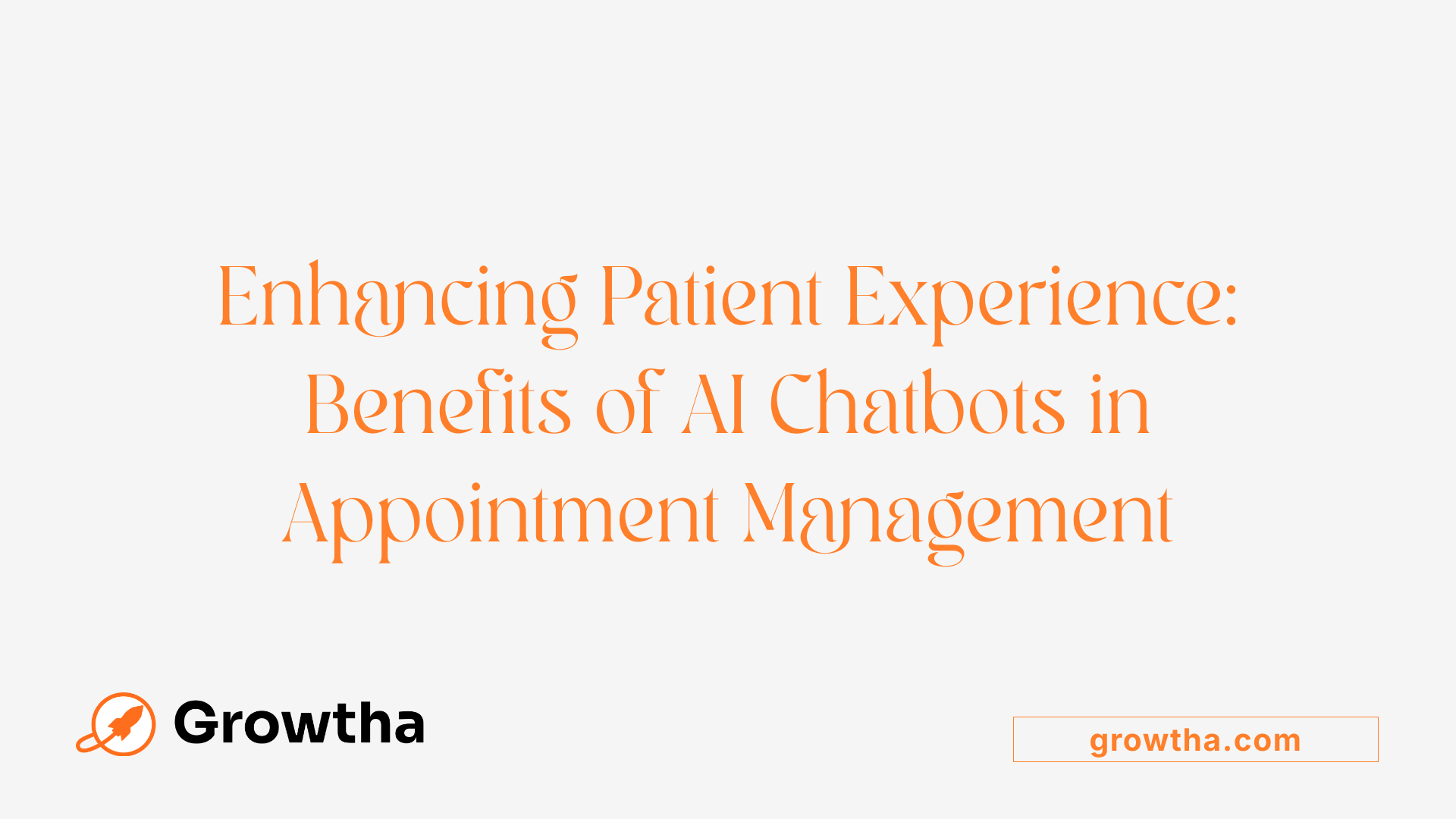
What benefits do AI chatbots offer for patient appointment management?
AI chatbots are transforming how patients and healthcare providers manage appointments, bringing many advantages that enhance overall healthcare experiences.
One of the most notable benefits is the increased convenience for patients. These chatbots provide 24/7 access to scheduling, allowing individuals to book, reschedule, or cancel appointments anytime, from any device. This flexibility means patients no longer need to adhere to fixed office hours or wait for staff availability, reducing frustration and saving time.
Automation plays a crucial role in minimizing administrative burdens. Chatbots automate routine tasks such as sending appointment reminders, which significantly cut down missed appointments or no-shows. This not only improves efficiency but also helps healthcare providers better allocate resources.
Navigating complex healthcare systems can be challenging, especially for new or elderly patients. AI chatbots assist users in finding the right providers, understanding available services, and locating nearby medical facilities. This support improves healthcare access, particularly for residents in rural or remote areas who might otherwise face barriers.
Further, chatbots contribute to smarter resource management through triage capabilities. By assessing symptoms and urgency levels, they guide patients to the most appropriate care pathways, reducing unnecessary emergency visits and optimizing healthcare utilization.
Integration with Electronic Health Records (EHRs) ensures that appointment data is accurate, up-to-date, and easily accessible for healthcare staff. Multi-language support broadens the reach, making appointment management accessible to diverse populations and overcoming language barriers.
Overall, AI chatbots offer a seamlessly integrated, efficient, and patient-centered approach to managing healthcare appointments, resulting in better outcomes and enhanced patient satisfaction.
Challenges and Limitations of AI Chatbots in Healthcare
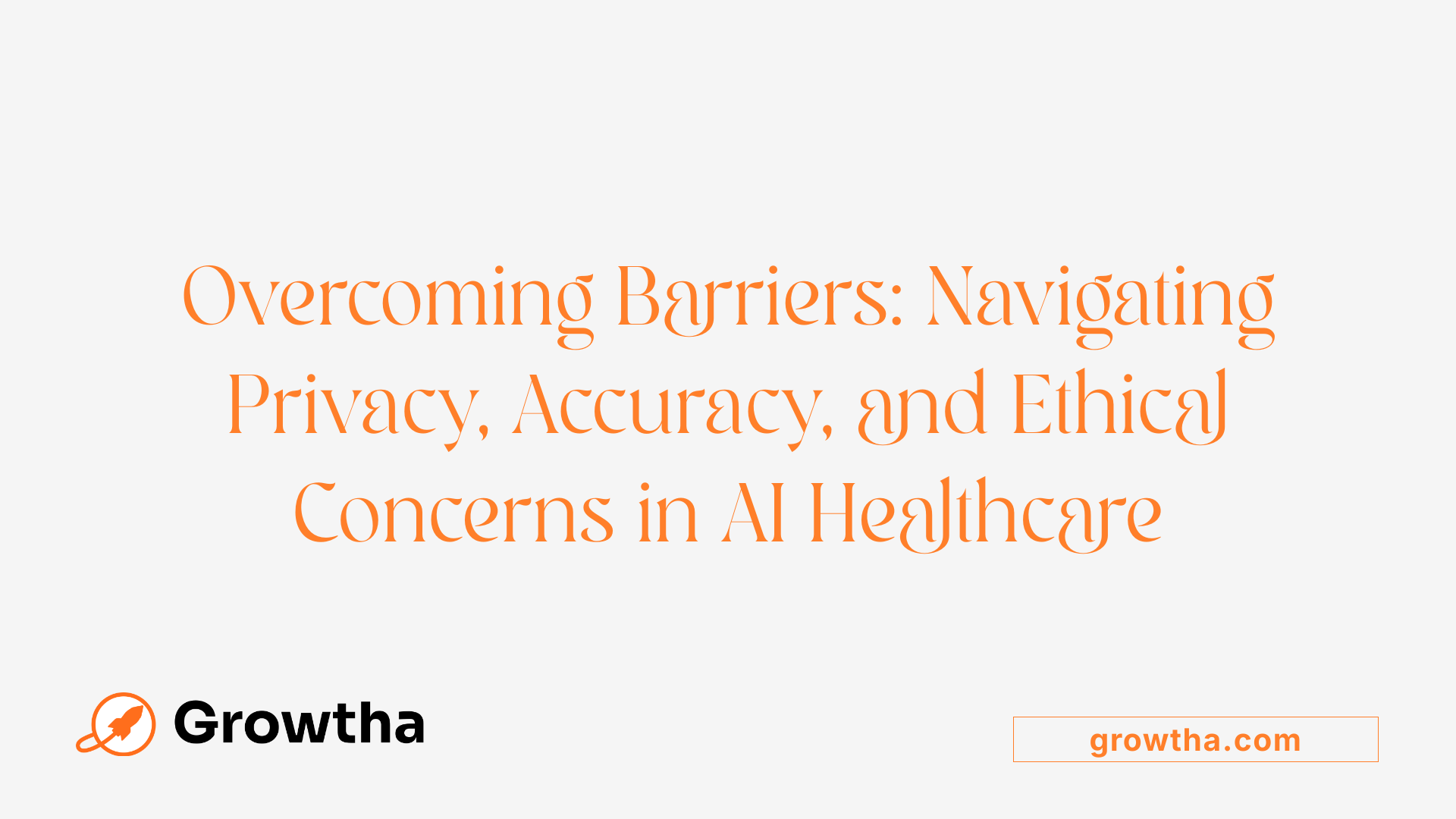
What are the challenges and limitations of implementing AI chatbots in healthcare?
Integrating AI chatbots into healthcare systems offers many benefits, but it also presents several significant hurdles. One of the primary concerns is ensuring data privacy and compliance with strict regulations like HIPAA in the United States. Protecting sensitive patient information through encryption, secure data storage, and strict access controls is essential to prevent breaches and maintain trust.
Technical limitations also pose challenges. Despite advances in natural language processing and machine learning, AI models can struggle to interpret complex medical queries accurately. They may fail to grasp nuanced symptoms or rare conditions, potentially leading to incorrect guidance. Furthermore, maintaining empathy and providing human-like understanding remains a hurdle, especially in delicate mental health or palliative care situations.
Misinformation and hallucinations are additional risks. AI systems may occasionally provide outdated, incorrect, or harmful advice, especially if trained on biased or incomplete datasets. Such errors could have serious health consequences and erode trust in these digital tools.
Ethical and legal issues further complicate deployment. Questions about liability if an AI chatbot misdiagnoses or provides unsafe recommendations remain largely unregulated, creating medicolegal uncertainties. Biases ingrained in training data can perpetuate health disparities, especially affecting underrepresented or marginalized groups.
There is also a potential for user overreliance. Patients might substitute chatbot advice for professional consultation, risking misdiagnosis or delayed treatment. While chatbots can guide symptom assessment and triage, they should complement, not replace, human healthcare providers.
Societal issues, such as widening health disparities due to unequal access to digital tools, and the lack of comprehensive regulation, remain pressing concerns. Ensuring equitable distribution and oversight at a policy level is vital.
Lastly, the necessity of human oversight and safety measures cannot be overstated. Continuous monitoring, validation, and integration with healthcare professionals are essential to mitigate these risks and ensure safe, effective use of AI chatbots in clinical settings.
Deployment Considerations for Healthcare AI Chatbots
What are important considerations for deploying AI chatbots in healthcare settings?
Implementing AI chatbots in healthcare requires careful planning to ensure they are effective, safe, and trustworthy. First, system compatibility is essential. Healthcare organizations must verify that chatbots can smoothly integrate with existing infrastructure such as Electronic Health Records (EHR), appointment systems, and telehealth platforms. This integration facilitates seamless data exchange and accurate information updates.
Compliance with healthcare regulations and data security measures is also critical. Chatbots handle sensitive information, so they must adhere to standards like HIPAA, utilizing encryption and secure storage to protect patient data from breaches.
Addressing ethical concerns involves transparency about how chatbots collect, use, and store data. It is important to clearly communicate to patients and staff what to expect from AI interactions. Additionally, efforts should be made to identify and mitigate biases in training datasets to prevent disparities in healthcare delivery. Human oversight remains crucial, especially to monitor chatbot responses and step in when complex or sensitive issues arise.
Staff training plays a vital role in successful deployment. Healthcare providers and support staff need to understand how to use and oversee chatbots within their workflows, ensuring they complement clinical activities without causing confusion or errors.
Ongoing maintenance and security are necessary for sustainable operation. Regular updates, performance monitoring, and security safeguards such as data encryption, access controls, and system audits help maintain reliability and safety.
Evaluating the clinical effectiveness of chatbots through standardized metrics is essential. This assessment helps healthcare providers determine their impact on patient outcomes, safety, and satisfaction, guiding continuous improvements.
Lastly, ensuring accessibility for diverse patient populations and fostering patient trust are fundamental. Multilingual support, user-friendly interfaces, and transparent communication contribute to equitable access and confidence in AI-powered healthcare.
In summary, deploying healthcare AI chatbots involves compatibility, compliance, ethics, training, ongoing evaluation, security, and trust-building efforts. When thoughtfully implemented, they can significantly enhance healthcare delivery by improving efficiency, patient engagement, and access.
Integration of AI Chatbots with Healthcare Systems and Workflows
How are AI chatbots integrated into existing healthcare systems and workflows?
AI chatbots are incorporated into healthcare environments mainly through the use of secure application programming interfaces (APIs) and specialized interfaces. These connections link chatbots with electronic health records (EHRs), appointment scheduling systems, telehealth platforms, and clinical decision support tools. This integration allows for smooth data exchange, making it easier to manage patient information, streamline administrative duties, and coordinate care.
The chatbots assist in automating routine tasks such as booking, rescheduling, and sending appointment reminders. They also play a role in symptom triage by gathering patient information and directing individuals to the appropriate level of care. Managing medication questions and follow-up inquiries become more efficient thanks to seamless data flow.
Beyond administrative duties, chatbots are being connected to wearable devices and digital sensors for real-time health monitoring. Patients’ vital signs and health data are continuously transmitted to these systems, providing instant insights to both patients and healthcare providers.
Designing effective AI systems involves a human-centered approach. Stakeholders—including clinicians, IT specialists, and patients—are actively involved in the development process to ensure the technology meets clinical needs, is user-friendly, and supports safety.
However, technical and logistical challenges such as system compatibility, data privacy, and workflow adjustments can complicate integration. Successful examples show that when these obstacles are managed, AI chatbots significantly improve operational efficiency, boost patient engagement, and facilitate more personalized care.
Overall, the integration of AI chatbots transforms healthcare delivery by creating more connected, efficient, and patient-centered practices, aligning technological advances with clinical workflows.
The Future of AI Chatbots in Healthcare
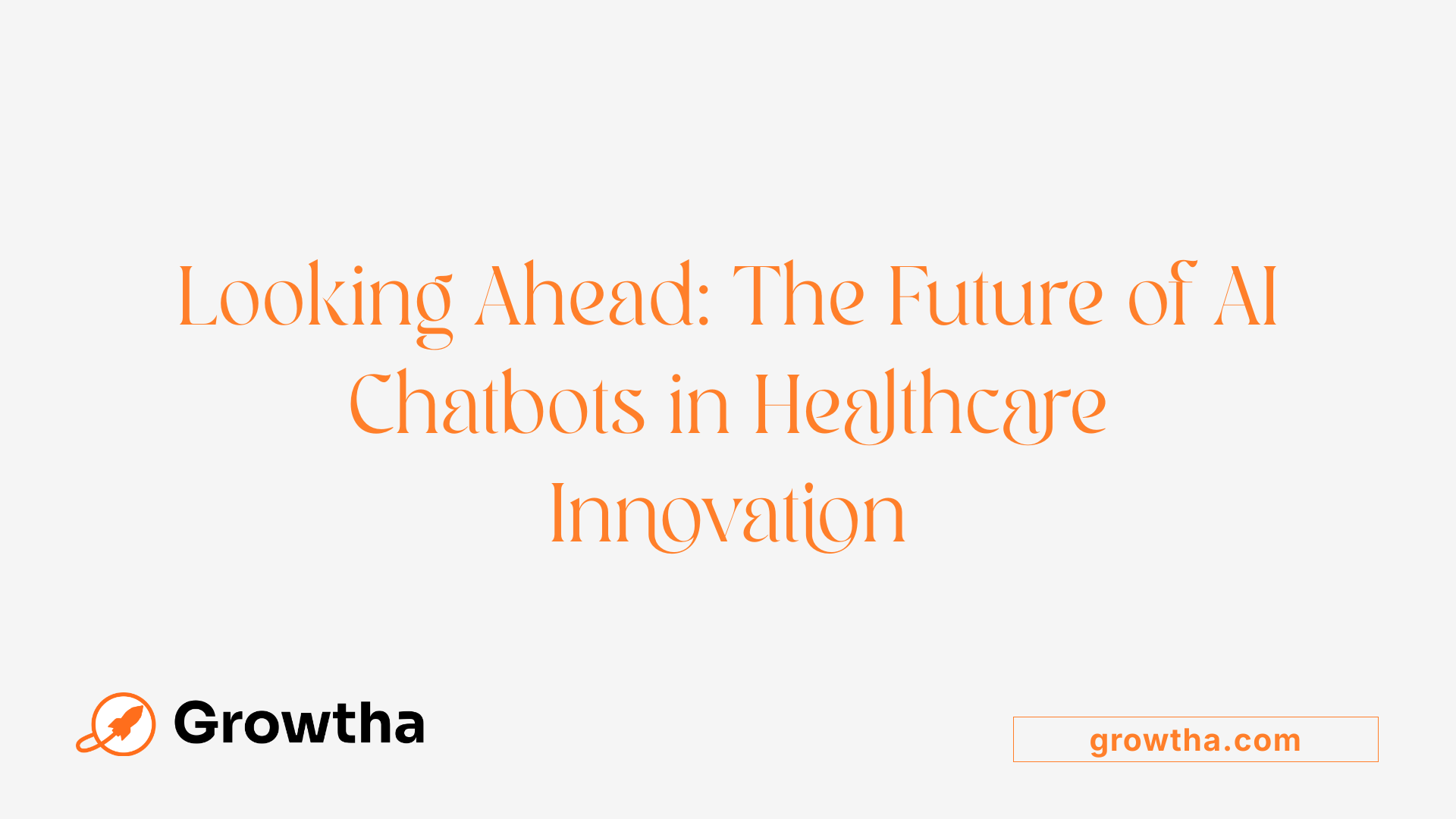
What is the future outlook for AI chatbots in healthcare?
The future of AI chatbots in healthcare looks very promising, with rapid technological advancements paving the way for more advanced, personalized, and intelligent solutions. These chatbots are set to become integral in enhancing patient engagement and streamlining clinical workflows.
One of the main trends is the development of chatbots that offer 24/7 support, automating routine administrative tasks like appointment scheduling, reminders, and basic health inquiries. By integrating with electronic health records (EHR), they can deliver more personalized health management and predictive analytics to help anticipate patient needs.
Emerging technologies such as large language models, multimodal interfaces (which combine text, voice, and visual data), and real-time data analysis are expected to enable more natural, context-aware interactions. This will allow patients to communicate through speech, images, or other media, making conversations more humanlike and responsive.
AI chatbots are also poised to expand into preventive health care, helping monitor risk factors, encourage healthy lifestyle choices, and support early detection of conditions. In chronic disease management, they can assist with ongoing symptom tracking and medication adherence, ultimately reducing hospitalizations and complications.
Market forecasts suggest that the adoption of AI chatbots will continue to grow rapidly, driven by ongoing innovations in AI and increased demand for accessible health care solutions. As these systems evolve, they will play a crucial role in making healthcare more accessible, cost-effective, and patient-centered.
In summary, the integration of advanced AI technologies will transform chatbots from simple information providers into comprehensive health assistants, supporting patients and clinicians alike in delivering higher-quality, more personalized care.
Embracing AI-Driven Innovation in Healthcare
AI chatbots are revolutionizing the healthcare landscape, offering unprecedented opportunities to enhance patient experience, reduce operational costs, and improve clinical outcomes. As technology advances and integration deepens, these systems will become even more integral to delivering accessible, personalized, and efficient care worldwide. Embracing these innovations responsibly, with attention to privacy, safety, and equity, will shape the future of healthcare into a more connected and patient-centric domain.
References
- Chatbots in Health Care: Connecting Patients to Information - NCBI
- Top 6 AI Chatbots in Healthcare in 2025 - Keragon
- AI Chatbots for Healthcare: A Smarter Way to Support Patients ...
- 6 ways AI chatbots streamline patient appointment scheduling
- Appointment Scheduling Chatbot for Healthcare - Manage Medical ...
- How AI Health Bots Improve Patient Engagement and Scheduling?
- Sizing up the market for AI chatbots, virtual assistants in medical ...
- Top Use Cases for AI Chatbot for Healthcare - Insighto.ai







